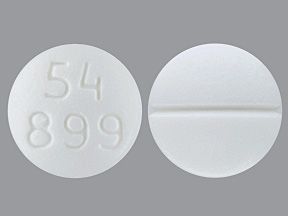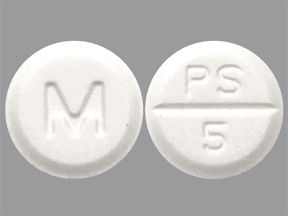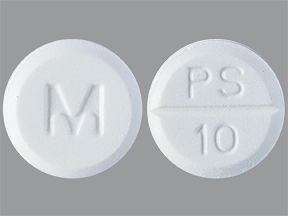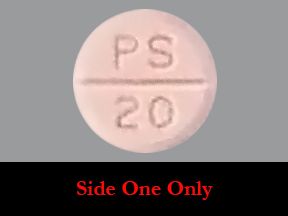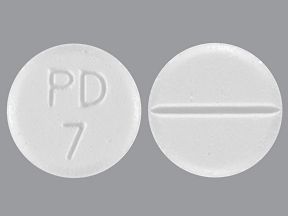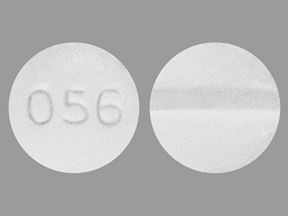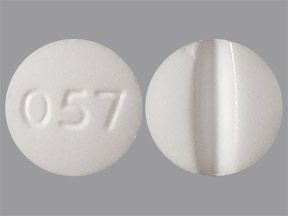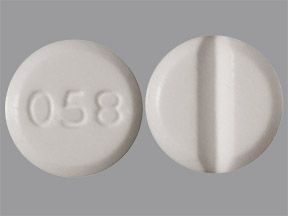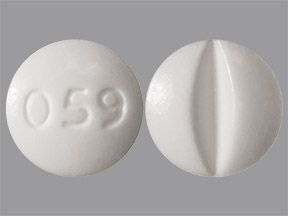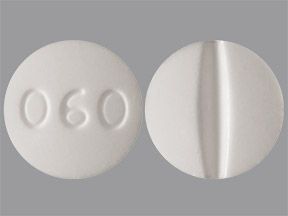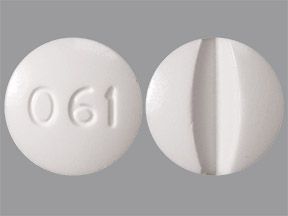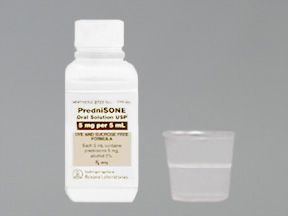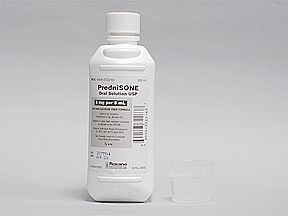Prednisone is a generic drug prescribed for various conditions that involve inflammation. It’s a corticosteroid drug, also called a steroid.
- Generic prednisone comes as an oral tablet and an oral liquid solution. Brand name: Prednisone Intensol oral solution concentrate
- Prednisone oral tablet helps reduce inflammation in the body. It’s used to treat a range of conditions, including multiple sclerosis (MS) and rheumatoid arthritis (RA).
- Immune system effects warning:
- Prednisone may reduce your immune system activity (sometimes referred to as weakening your immune system). A weakened immune system makes you more likely to get infections. You should take steps to avoid becoming sick during prednisone treatment. Try to avoid being near people who are sick or have recently been sick, especially with chickenpox or measles. These infections can be serious or deadly in people who have had them before and who have lowered immunity due to this drug.
- Tell your doctor about any recent infections or if you develop any symptoms of an infection, such as fever, chills, or body aches.
- Live vaccines warning: You should not receive live vaccines while taking prednisone in high doses. (Live vaccines have a small, weakened amount of the live virus they’re meant to protect against.) If your immune system activity is reduced, your body may be unable to fight the live virus. This may lead to an infection.
- Weak bones warning: Prednisone can cause bone loss and osteoporosis (weak and brittle bones) with long-term use. This drug can also slow growth in children when it’s used long term. Talk with your doctor if you have any questions about this medication.
- Adrenal suppression warning: Prednisone can cause adrenal suppression (when your adrenal glands stop making certain hormones in your body). This can happen if you take this drug for a long time or if you suddenly stop taking it. Do not stop taking prednisone without talking with your doctor first.
- Harm to fetus warning: Prednisone can cause harm to a fetus if taken during pregnancy. The risk is greater if you take the drug during the first trimester of pregnancy. If you are pregnant or planning to become pregnant, or are breastfeeding, talk with your doctor about your treatment options.
Prednisone is a generic prescription drug. It comes as an oral tablet and an oral liquid solution. This article focuses primarily on the oral tablet.
A brand-name oral solution concentrate called Prednisone Intensol is also available. Generic drugs usually cost less than the brand-name version. Sometimes, they may not be available in all the same strengths or forms as the brand-name drug.
Prednisone reduces inflammation in your body. It’s approved to treat:
- allergies and allergic reactions
- anemia
- asthma
- bursitis
- dermatitis
- endocrine disorders such as adrenal insufficiency or congenital adrenal hyperplasia
- eye inflammation
- eye ulcer
- lung diseases such as sarcoidosis or aspiration pneumonia
- lupus and nephrotic syndrome
- MS exacerbations (flare-ups)
- optic neuritis
- osteoarthritis
- psoriasis
- RA
- psoriatic arthritis
- thrombocytopenia (low platelet count)
- ulcerative colitis
- symptoms of lymphoma or leukemia
This section contains partial lists of prednisone side effects. To learn about other mild side effects, talk with your doctor or pharmacist or view the drug’s prescribing information.
More common side effects
The more common side effects that can occur with prednisone include:
- confusion
- excitement
- restlessness
- headache
- nausea
- vomiting
- thinning skin
- acne
- trouble sleeping
- weight gain
If these effects are mild, they may go away within a few days or a couple of weeks. If they’re more severe or don’t go away, talk with your doctor or pharmacist.
Serious side effects
Call your doctor right away if you have serious side effects. Call 911 if your symptoms feel life threatening or if you think you’re having a medical emergency. Serious side effects and their symptoms can include the following:
- Severe allergic reactions.
- Changes in emotions or moods, such as depression.
- Changes in vision.
- Eye pain.
- Infection. Symptoms can include:
- fever or chills
- cough
- sore throat
- trouble or pain when urinating
- High blood sugar. Symptoms can include:
- increased thirst
- urinating more often than usual
- feeling sleepy or confused
- swelling of your ankles or feet
This dosage information is for prednisone oral tablet. All possible dosages and forms may not be included here. Your dosage, drug form, and how often you take the drug will depend on:
- your age
- the condition being treated
- the severity of your condition
- other medical conditions you have
- how you react to the first dose
Forms and strengths
Prednisone comes in the following forms and strengths:
| Strengths | |
|---|---|
| Generic prednisone tablet | 1 milligram (mg), 2.5 mg, 5 mg, 10 mg, 20 mg, 50 mg |
| Generic prednisone solution | 5 mg per 5 milliliters (5 mg/5 mL) |
| Brand-name Prednisone Intensol solution concentrate* | 5 mg/mL |
* Concentrate means it’s higher-strength and contains fewer inactive ingredients.
Recommended dosage
The typical starting dosage for prednisone oral tablets in adults may vary from 5 mg to 60 mg per day, depending on the condition being treated and other factors.
For an exacerbation (flare-up) of MS, your doctor might prescribe 200 mg of prednisone once per day for one week. Then, they may have you reduce your dose to 80 mg, which you take every other day for 1 month.
To help reduce side effects, doctors might prescribe alternate day therapy. This refers to taking twice your usual dose of prednisone every other morning. Do not use alternate day therapy unless prescribed by your doctor. (Note: This applies to the prednisone immediate-release tablet only.)
Child dosage (ages 0–17 years)
Prednisone dosages for children are usually based on weight. Your doctor will determine the best dosage for your child.
Older adult dosage (ages 65 years and older)
Older adults may process drugs more slowly. A typical adult dose may cause levels of the drug to be higher than usual. If you’re ages 65 or older, you may need a lower dose or a different dosing schedule.
Before taking prednisone, talk with your doctor and pharmacist. Tell them about all prescription, over-the-counter, and other drugs you take. Also tell them about any vitamins, herbs, and supplements you use. Sharing this information can help you avoid potential interactions.
This section contains a list of medications that can interact with prednisone. This section does not include all drugs that may interact with prednisone. If you have questions about drug interactions that may affect you, ask your doctor or pharmacist.
Mifepristone
Taking mifepristone with prednisone may prevent prednisone from working correctly. Avoid taking mifepristone if you’ve been taking prednisone regularly for a long time.
Bupropion
Taking bupropion (Wellbutrin) with prednisone may cause seizures.
Haloperidol
Taking haloperidol (Haldol) with prednisone may cause heart rhythm problems.
Live vaccines
Taking prednisone reduces the activity of your immune system. If you receive a live vaccine while taking prednisone, your immune system might be unable to process it properly. This may lead to an infection. (Live vaccines have a small, weakened amount of the live virus they’re meant to protect against.)
If you’re not sure if a vaccine is a live vaccine, ask your doctor.
Drugs to treat diabetes
Taking prednisone with certain diabetes drugs may result in an increase in your blood glucose levels and problems controlling your diabetes. Examples of these drugs include:
- sulfonylureas, such as glipizide or glyburide
- biguanides, such as metformin (Fortamet, Glumetza)
- thiazolidinediones, such as pioglitazone (Actos) or rosiglitazone
- acarbose
- metiglinides, such as nateglinide or repaglinide
Warfarin
Taking warfarin (Jantoven) with prednisone may reduce the blood-thinning effect of warfarin. If you take these drugs together, your doctor may monitor your treatment with warfarin closely.
Digoxin
Taking digoxin (Lanoxin) with prednisone may cause heart rhythm problems.
Nonsteroidal anti-inflammatory drugs (NSAIDs)
Taking NSAIDs with prednisone may increase your risk of stomach issues, such as ulcers and bleeding. Examples of NSAIDs include:
This drug comes with several warnings.
Allergic reaction warning
For some people, prednisone can cause an allergic reaction. In general, symptoms of allergic reaction can be mild or serious.
Ways to manage
For mild allergic reaction symptoms, such as a mild rash, call your doctor right away. They may recommend treatments to help manage your symptoms. They’ll also let you know whether you should keep taking the medication.
For severe allergic reaction symptoms, such as swelling or trouble breathing, call 911 or your local emergency number right away. These symptoms require immediate medical care because they can become life threatening. If you’ve had a serious allergic reaction to prednisone, your doctor may recommend taking a different medication instead.
If you’ve had a reaction to prednisone or any of its ingredients in the past, your doctor won’t prescribe it for you again.
Other precautions
Before taking prednisone, discuss your health history with your doctor. Prednisone may not be right for you if you have certain medical conditions or other factors affecting your health. Be sure to talk with your doctor if any of the following apply to you:
- past or present serious infections (note: if you have a systemic [body-wide] fungal infection, your doctor will not prescribe prednisone for you)
- upcoming vaccines
- heart problems
- kidney problems
- liver problems
- high blood pressure
- stomach or bowel problems
- diabetes
- eye problems, including eye herpes
- hypothyroidism (underactive thyroid)
- myasthenia gravis
- mood disorders, such as depression
- pregnancy or breastfeeding (see following information)
The following information highlights some additional considerations.
For pregnant people: Talk to your doctor if you’re pregnant or planning to become pregnant. Research in animals has shown adverse effects on the fetus when the mother takes prednisone. Studies show a risk of adverse effects on the pregnancy when the mother takes the drug. This drug should only be used during pregnancy in serious cases where it’s needed to treat a dangerous condition in the pregnant person.
For people who are breastfeeding: Talk with your doctor before taking prednisone if you’re breastfeeding or planning to breastfeed. Prednisone can pass through breast milk. High doses of prednisone can interfere with a child’s growth and development.
For older people: As you age, your kidneys, liver, and heart may not work as well. Prednisone is processed in your liver and removed from your body through your kidneys. It makes these organs work extra hard. If you’re an older adult, your doctor may start you on a low dose and increase it slowly.
For children: Children might not grow as tall as other children of the same age if they take prednisone for several months. Your child’s doctor should monitor your child’s growth rate.
It’s recommended to take prednisone tablets with food to help prevent an upset stomach.
If you take this medication once per day, it’s recommended to take it in the morning. If you take it more than once per day, space your doses out evenly throughout the day.
How long you take prednisone oral tablet is based on your condition and your body’s response to treatment. This drug comes with risks if you don’t take it as prescribed.
If you stop taking the drug or don’t take it at all: Your symptoms won’t be treated and may worsen. Don’t stop taking prednisone abruptly without speaking with your doctor first. You may experience withdrawal symptoms (see “Q&A” later in this article).
If you miss doses or don’t take the drug on schedule: Your medication may not work as well or may stop working completely. For this drug to work well, a certain amount needs to be in your body at all times.
If you take too much: You could have dangerous levels of the drug in your body. Symptoms of an overdose of this drug can include:
- burning or itching skin
- seizures
- deafness
- high blood pressure
- muscle weakness
If you think you’ve taken too much of this drug, call your doctor or seek guidance from America’s Poison Centers at 800-222-1222 or through its online tool. But if your symptoms are severe, call 911 or go to the nearest emergency room right away.
What to do if you miss a dose: If you forget to take a dose, take it as soon as you remember. If it’s close to the next dose, skip the dose and take it at your next regularly scheduled time. Do not take extra doses to make up for the missed dose.
Prednisone works by reducing the activity of your immune system. This action blocks chemicals that cause inflammation as part of your body’s immune response and can help decrease inflammation in many parts of your body.
How to tell if prednisone is working
You should experience less pain and swelling. It may also reduce other symptoms of the condition you’re taking prednisone for. Certain lab tests can also help identify whether prednisone is effective for your condition.
Talk with your doctor if you have questions about whether this medication is working for you.
As with all medications, the cost of prednisone can vary. The actual price you’ll pay depends on your insurance plan, your location, and the pharmacy you use.
Drug coupons: You can visit Optum Perks for price estimates of prednisone. These estimates are based on the use of Optum Perks coupons. Note: Optum Perks coupons cannot be used with insurance copays or benefits.
Financial and insurance assistance: If you need financial support to pay for prednisone, or if you need help understanding your insurance coverage, help is available.
Some websites provide details about drug assistance programs, ways to make the most of your insurance coverage, and links to savings cards and other services. Two such websites are:
You can also talk with your doctor or pharmacist to learn more about saving money on prescriptions.
Keep these considerations in mind if your doctor prescribes prednisone for you.
Clinical monitoring
Your doctor may do tests to check your health and ensure the drug is working and safe for you. These tests may include:
- Blood tests, such as tests to check your blood sugar levels. Prednisone can increase your blood sugar level and raise your risk of diabetes.
- Bone density tests. Prednisone can increase your risk of bone loss and osteoporosis (weak and brittle bones).
- Eye tests. Prednisone can increase pressure inside your eyes.
Storage
- Store this drug at a temperature between 68°F and 77°F (20°C and 25°C).
- Keep the container tightly closed and away from light.
- Don’t store this medication in moist or damp areas, such as bathrooms.
Travel
When traveling with your medication:
- Always carry your medication with you. When flying, never put it into a checked bag. Keep it in your carry-on bag.
- Don’t worry about airport X-ray machines. They won’t damage your medication.
- You may need to show airport staff the pharmacy label for your medication. Always carry the original prescription-labeled container with you.
- Don’t put this medication in your car’s glove compartment or leave it in the car. Be sure to avoid this when the weather is very hot or cold.
Your diet
Steroids such as prednisone change the amount of water and salts in your body. In large doses, prednisone can cause your body to retain salt or lose potassium. Your doctor may recommend changes to your diet to manage this side effect.
Alternatives
There are other drugs available to treat your condition. Some may be better suited for you than others. Talk with your doctor about other drug options that may work for you.
Disclaimer: Medical News Today has made every effort to make certain that all information is factually correct, comprehensive, and up to date. However, this article should not be used as a substitute for the knowledge and expertise of a licensed healthcare professional. You should always consult your doctor or another healthcare professional before taking any medication. The drug information contained herein is subject to change and is not intended to cover all possible uses, directions, precautions, warnings, drug interactions, allergic reactions, or adverse effects. The absence of warnings or other information for a given drug does not indicate that the drug or drug combination is safe, effective, or appropriate for all patients or all specific uses.

